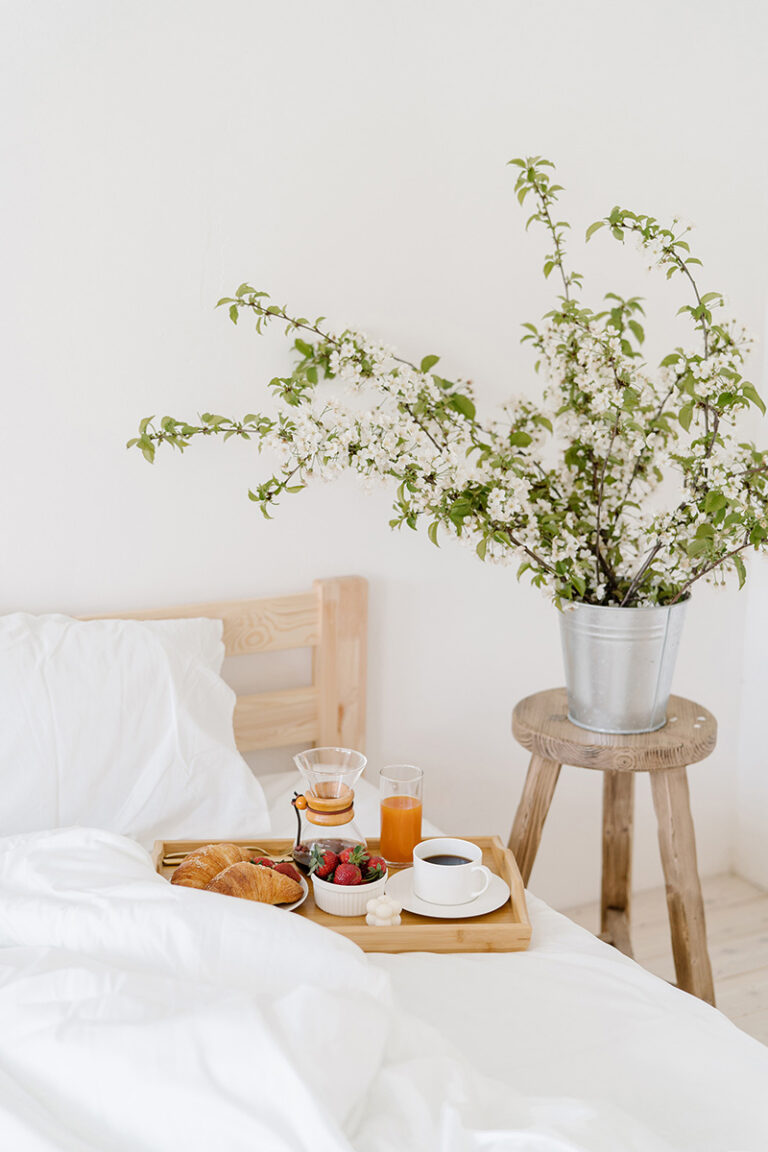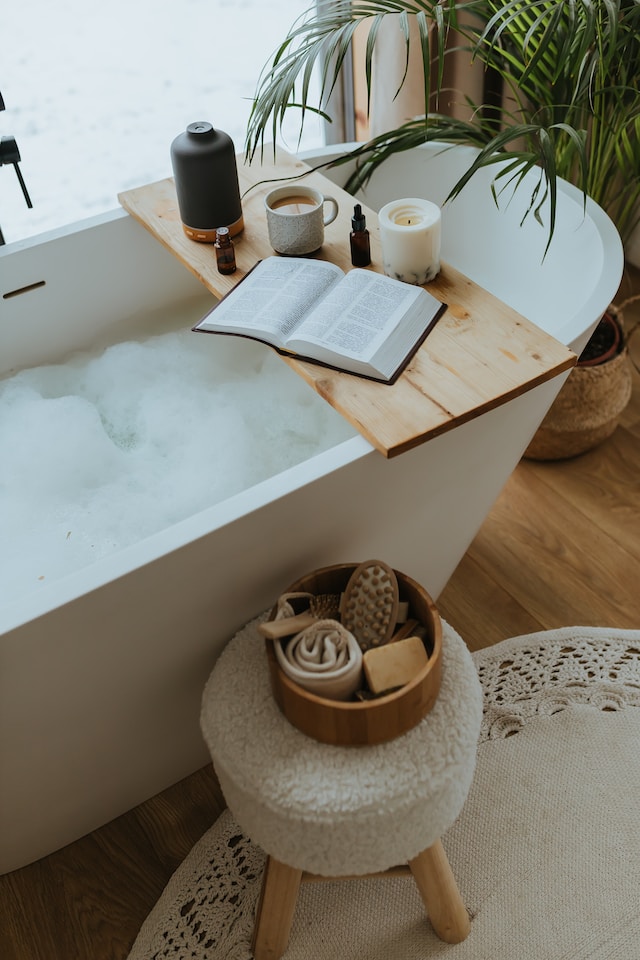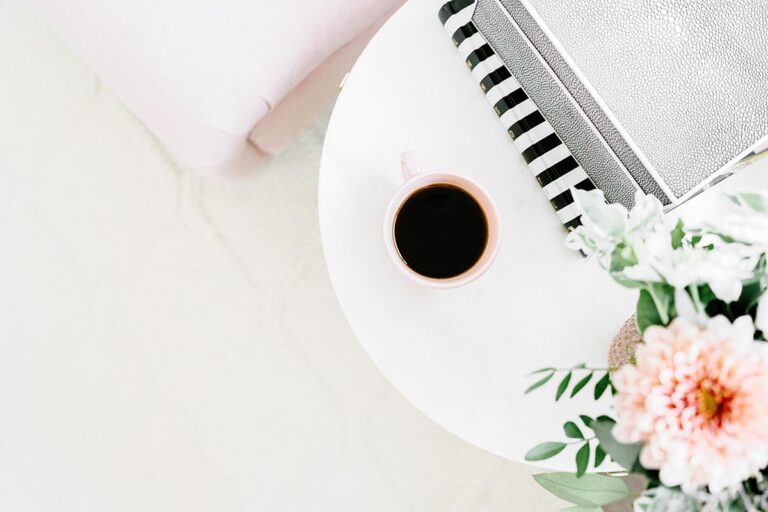Night Time Shower Routine: 5 Steps to Unwind and Rejuvenate
Winding down for the night involves a ritual that sets the stage for a good night’s sleep. Your night time shower routine is more than just a way to clean off the day’s sweat and stress; it’s a sanctuary where relaxation meets self-care. Think of it as your personal time-out, allowing you to decompress and indulge in a moment of tranquility at the end of the day.
It’s not just about the products you use, but also about creating an atmosphere that helps soothe your mind. The warmth of the water, the fragrance of your body wash, and the softness of your towels all contribute to an experience that helps you shed the day’s burdens.
Imagine stepping into a warm, steamy shower where stress washes away with every drop. This is your time to focus on yourself, letting the soothing scents and the rhythm of the water ease you into a state of peace. It’s in these precious moments that you recharge and prepare your body and mind for a restful sleep.

Night Time Showers Vs. Morning Showers
While many people will opt for a morning shower to wake up, there are many benefits to taking a shower at night before bed. Not only does it rinse away the day’s dirt and grime, but it also helps promote better sleep by lowering your body temperature.
Additionally, using calming scents and products can help ease tension and prepare you for a restful slumber. Incorporating elements of feminine hygiene and body care, a well-thought-out shower routine will surely pamper your skin and senses.
On the other hand, morning shower routines are typically about energizing and getting ready for the day ahead. You wake up feeling refreshed and clean, ready to tackle whatever challenges come your way. It can also help wake up your muscles and get your blood flowing for improved circulation.
Ultimately, the choice between a night time shower or morning shower is a personal preference. Some people may prefer one over the other, while others may enjoy both depending on their mood or schedule.
The key is to find a shower routine that works best for you and helps you start or end your day on a positive note. Whether it’s a quick 5-minute rinse or a luxurious 30-minute spa experience, make sure to take the time to prioritize self-care in your daily routine.
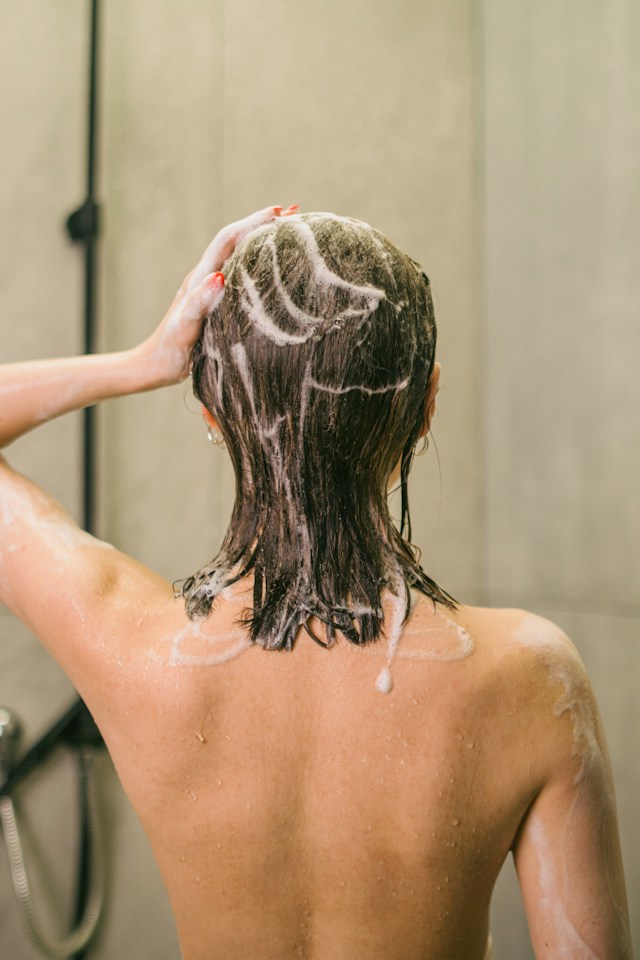
Hot Showers Vs. Cold Water
Another factor to consider in your shower routine is the temperature of the water. While hot showers may be comforting and relaxing, cold water can have many benefits for your skin and overall health.
Hot water can strip away natural oils from your skin, leading to dryness and irritation. On the other hand, cold water can help tighten pores and improve blood circulation, giving you a healthy glow.
Cold water can also help strengthen your immune system and increase alertness, making it a great option for a morning pick-me-up. It can also improve hair health by sealing the cuticle and reducing frizz.
However, if you have any existing skin conditions like eczema or psoriasis, consult with your dermatologist before incorporating cold showers into your routine. They may recommend a lukewarm temperature to avoid aggravating your skin.
Also, don’t forget the weather! During colder seasons, a hot shower may be more appealing and beneficial for warming up your body. But in the summer heat, a cold shower can feel refreshing and rejuvenating.
When taking a shower in the night, the chances are that a hot shower will help you sleep better. The warm water can relax and soothe your muscles, promoting restful sleep.
However, some people may find it difficult to fall asleep after a hot shower due to increased body temperature. In this case, a quick cold rinse before bed can help cool down the body and promote relaxation for better sleep.
Nevertheless, taking cold shower during nighttime may have its downside for some people. If you have a low body temperature, low blood pressure, or poor circulation, cold showers may leave you feeling even colder and uncomfortable. It may also lead to some health risks, such as hypothermia or exacerbating symptoms of conditions like asthma or bronchitis.
Therefore, it is essential to listen to your body and adjust the water temperature according to your needs and preferences. Not because cold or hot showers have many benefits, it means that it is suitable for everyone.
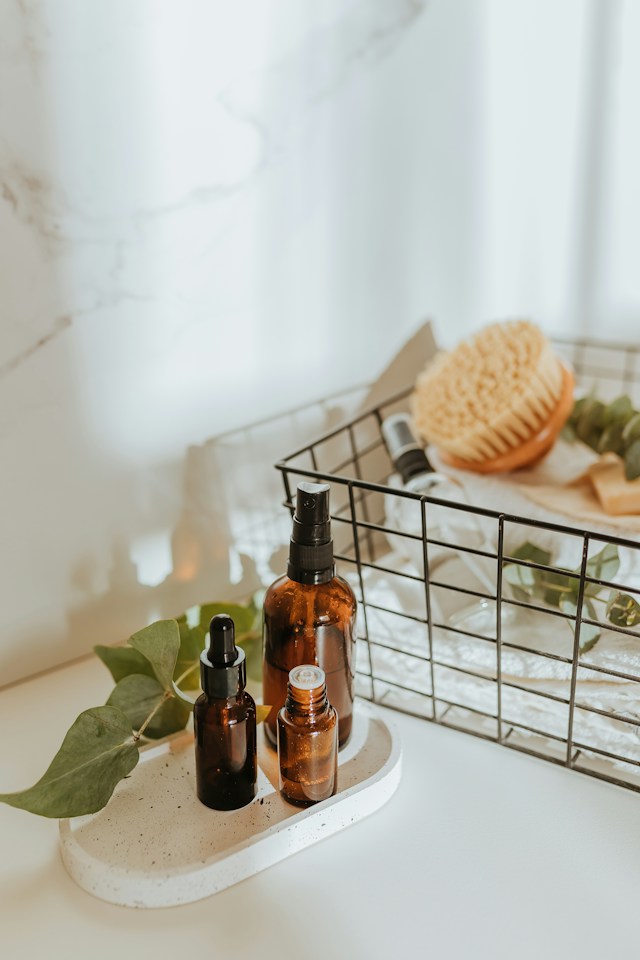
Pre-Shower Rituals
Before diving into your shower, take a moment to curate your products and create an atmosphere that caters to your relaxation and cleansing needs.
A night time shower is the perfect opportunity to unwind and let go of the day’s stress. Consider incorporating some aromatherapy by using scented candles or essential oils in your shower routine. Lavender, chamomile, and vanilla are known for their calming properties, while peppermint and eucalyptus can invigorate your senses.
Choosing Shower Products
First, select your shower essentials focusing on quality and suitability for your skin and hair. Opt for products that address specific concerns such as oily hair or body acne. For example:
- Shampoo: Select according to your scalp type.
- Conditioner: Choose one that complements your hair texture.
- Body Wash: Aim for a pH-balanced body wash that hydrates and cleanses.
Remember, your product choices should enhance your shower experience and address your personal hygiene goals.
Setting the Atmosphere
Next, set the stage for a soothing experience. Play some calm music to unwind or light candles for a soft, warm glow. Adjust the lighting in your bathroom to a soothing level, and consider a bath mat or towel that feels plush beneath your feet.
Creating an environment that pleases your senses can transform your routine into a luxurious self-care ritual, yet it doesn’t have to be expensive. Neither must you leave your house to get professional spa services, as you can create that spa-like atmosphere right in your shower.
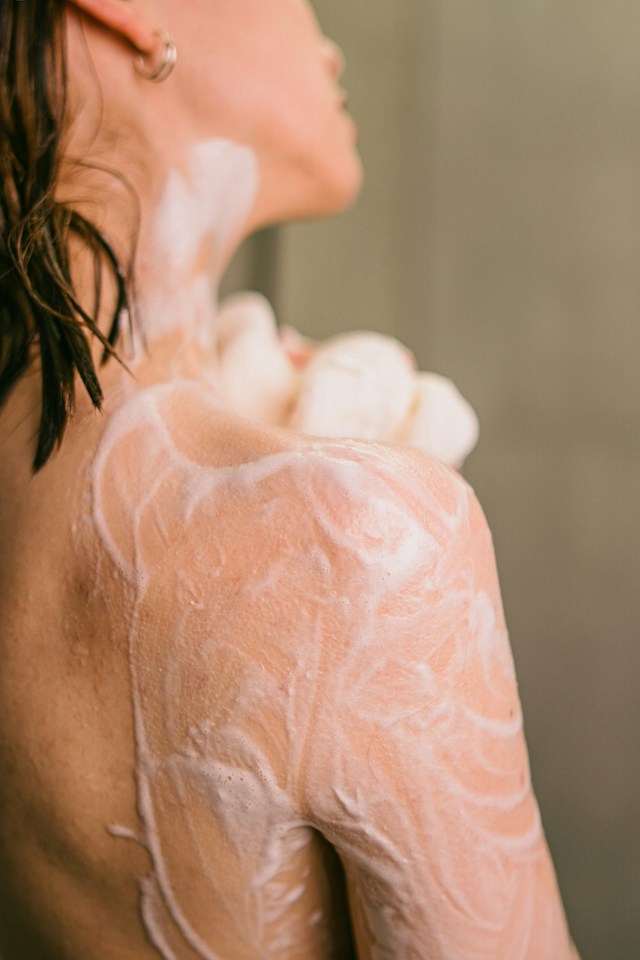
Shower Sequence
Having a consistent night time shower routine can maximize hygiene and relaxation before bed. Here’s how to structure your shower sequence effectively.
Temperature Regulation
Setting the right temperature for your shower is crucial. Start with a warm shower to open your pores, which can help cleanse the skin more effectively.
If you want your skin to glow naturally, you can alternate between warm and cool water to boost circulation. The contrast in temperature can also help with stress relief. Finally, end your shower with a brief burst of cool water to close your pores.
The warmth is also relaxing for your muscles, setting a calm mood for your night time routine. It’s suggested to avoid extreme temperatures, as they can be harsh on your skin. Instead, stick to lukewarm temperatures to avoid drying out your skin or damaging it.
Hair Care Routine
Your hair care begins with a thorough rinse, allowing water to run through your hair to remove any loose debris. Then apply shampoo, focusing on your scalp to remove oil and build-up. After rinsing the shampoo, apply conditioner to the ends of your hair to nourish and detangle.
Advice on shampooing suggests to lather, rinse, but not necessarily repeat. If you have oily hair, you may need to shampoo twice. If your scalp is on the dry side, shampoo every other day or less frequently, and use a light conditioner.
Body Cleansing Method
With your hair taken care of, move on to cleansing your body. Use a gentle body wash and apply it with a loofah or washcloth. The texture of the loofah or washcloth can help exfoliate your skin and remove dead cells, leaving it soft and smooth.
Avoid using harsh scrubs or body washes with strong fragrances that can irritate your skin. Opt for natural ingredients and avoid any products with sulfates, parabens, or other harmful chemicals.
Start from the top and work your way down, which helps wash away stress and also ensures cleanliness as the soap and water run down your body. Pay extra attention to areas that sweat more, such as underarms and feet.
Face Wash Routine
Before hopping out of the shower, take some time to wash your face. Use a gentle cleanser that is suitable for your skin type. For oily skin, opt for a foaming or gel cleanser, while dry skin may benefit from a creamy or oil-based cleanser.
Gently massage the cleanser onto your face in circular motions and rinse thoroughly with lukewarm water. Pat your face dry with a clean towel, avoiding rubbing which can irritate the skin.
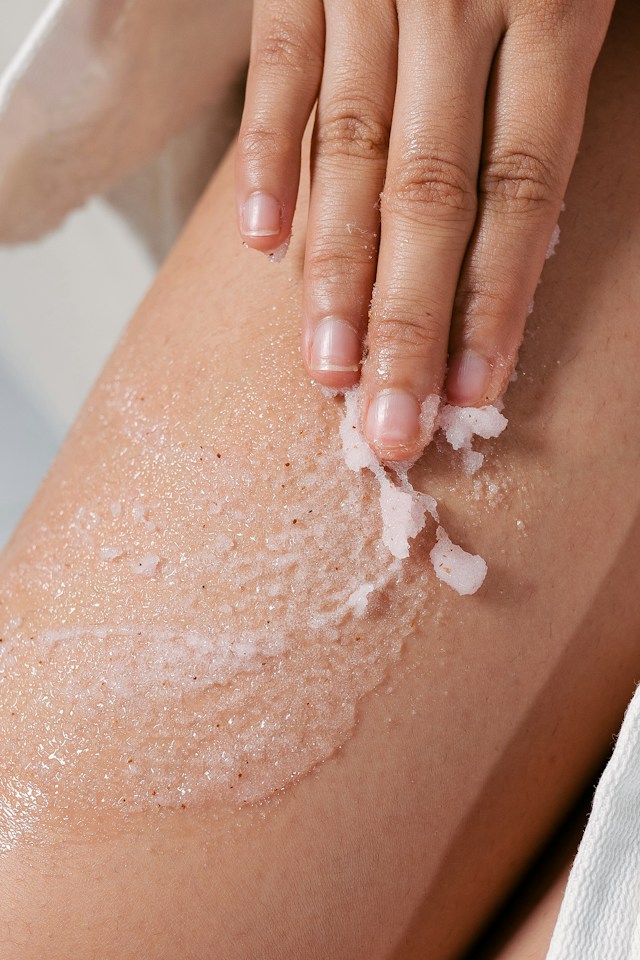
Skin Care Integration
Incorporating skin care into your nighttime shower routine can boost your skin’s health and radiance. Pay special attention to exfoliation and the products you use on your hair, as they can have a significant impact on your skin’s condition.
Exfoliation Technique
Exfoliate gently: It’s important to choose an exfoliation method that suits your skin type. If you have sensitive skin, a soft loofah or a gentle exfoliating cleanser can remove dead skin cells without causing irritation.
For a deeper cleanse, consider using a physical exfoliant with small granules once or twice a week, or an AHA-based exfoliator to promote cell turnover.
- Frequency: Limit exfoliation to 2-3 times per week to prevent over-exfoliation.
- Technique: Use circular motions when exfoliating your face and body to stimulate blood flow and achieve a uniform removal of dead skin cells.
Shampoo and Conditioner Choices
Shampoo wisely: Your shampoo choice can affect your skin. Opt for a sulfate-free shampoo to prevent stripping your skin and hair of natural oils, which could lead to dryness.
Consider shampoo options that complement your skin type; for example, if you have an oily scalp, look for clarifying formulas.
- Scalp care: Massage your scalp to clear buildup and support healthy hair growth. You can also use a scalp scrubber to gently exfoliate and stimulate blood flow.
- Condition properly: Avoid letting conditioner come in contact with your face, as it can lead to clogged pores and breakouts.
After rinsing conditioner out of your hair, use a clean towel to gently pat your skin dry. Avoid twisting your hair too tightly in the towel, as it can cause breakage.
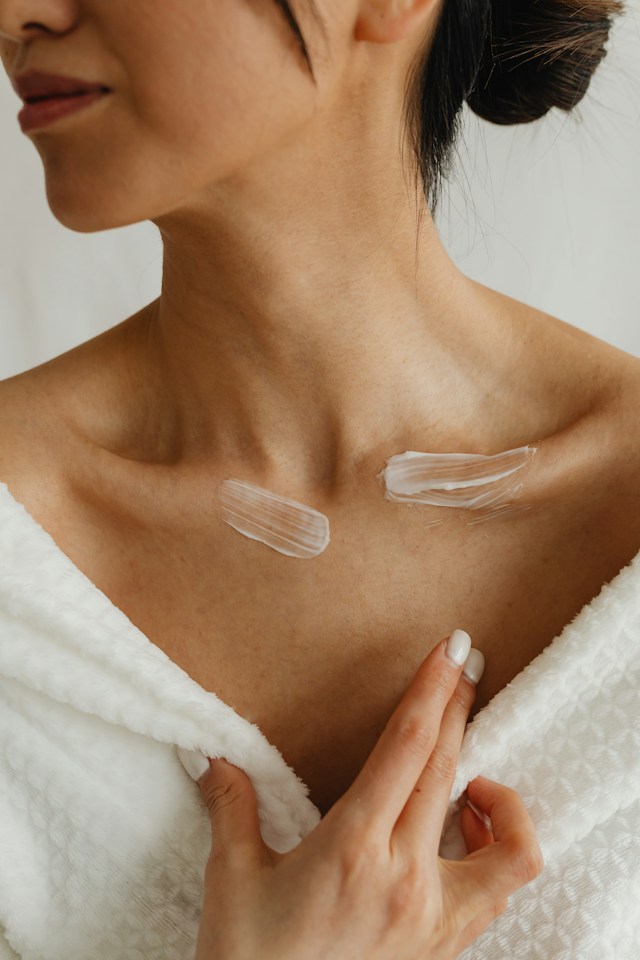
Post-Shower Care
After a refreshing shower, taking the right steps can ensure your skin stays hydrated and you feel relaxed before bedtime.
Drying Off
Gently pat your skin dry with a soft towel instead of rubbing. This helps to prevent skin irritation and keeps moisture intact.
Moisturizing Process
Immediately apply a hydrating moisturizer to lock in moisture. Consider using products recommended in the self-care shower routine which suit your skin type for optimal results.
Relaxation Practices
Incorporating relaxation practices into your nighttime shower routine can significantly improve your sleep quality and help you unwind after a busy day. Focus on breathing exercises and aromatherapy to create an oasis of calm in your bathroom.
Breathing Exercises
Start your shower by standing under the warm water and taking deep, slow breaths. Inhale for a count of four, hold for seven, and exhale for eight. This 4-7-8 breathing method helps decrease anxiety and prepares your body for relaxation.
Aromatherapy Usage
Introduce essential oils like lavender or chamomile which are known for their soothing properties. You can add eucalyptus to your shower head or use products infused with essential oils. The steam will help disperse the fragrance, enveloping you in a comforting aroma.
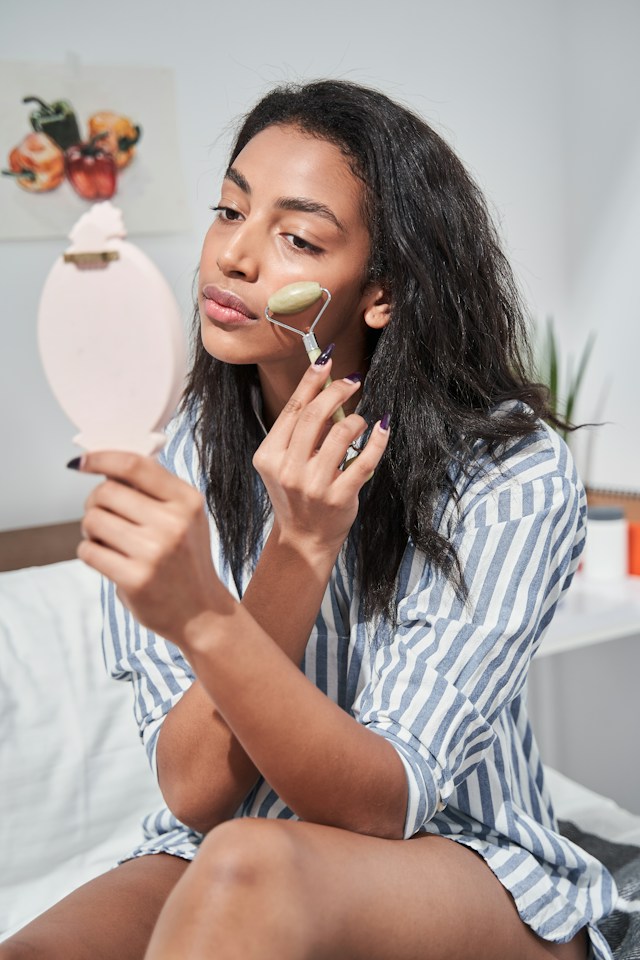
Sleep Preparation
Preparing for bed with a night-time shower routine can greatly enhance your sleep quality. By selecting the right nightwear and practicing good bedtime skincare, you set yourself up for a restful night.
Choosing Nightwear
Before you slip under the covers, choosing the right nightwear is crucial. What you wear should be:
- Comfortable: Opt for loose-fitting clothes made from breathable fabrics like cotton.
- Appropriate for the temperature: Lightweight pajamas in the summer and warmer ones in the winter help maintain a comfortable body temperature.
The last thing you want to put on is either something that will make you feel too hot or too cold during the night, or your old nightwear that you’ve had for a couple of days. Treat yourself to some new, comfortable nightwear and feel the difference it makes in your sleep.
Bedtime Skincare
Your skin also deserves attention as part of your pre-sleep ritual. A gentle routine is key:
- Cleanse: Use a mild cleanser to remove impurities and excess oils.
- Moisturize: Apply a hydrating lotion or cream to your face and body to replenish moisture overnight.
- Massage: Take a few minutes to massage your face with a facial oil or lotion, using gentle circular motions to promote relaxation and blood circulation.
- Apply Lip Balm: Don’t forget your lips! Apply a nourishing lip balm to prevent dryness while you sleep.
After this step, if you don’t want to do any other night-time skincare routine, you’re done! You can now slip into your comfortable nightwear and enjoy a restful sleep.
However, if you still want to do some light bedtime rituals before hitting the pillow, here are a few more suggestions:
- Use eye cream: A hydrating eye cream can help reduce puffiness and dark circles.
- Apply a sleeping mask: For an extra boost of hydration and nourishment, apply a sleeping mask before bed. These masks are designed to be left on overnight and washed off in the morning for brighter, smoother skin. if you don’ have any sleeping mask ready, a face mask will do the trick as well, but you may need to wash it off before bed.
- Use hand cream: Don’t forget to show your hands some love too! Apply a nourishing hand cream before bed to keep your hands soft and smooth.
By taking care of your skin at night, you’ll wake up looking and feeling refreshed. And when you feel good, you sleep better. So don’t underestimate the power of a night time shower and a proper skincare routine, especially if you struggle with getting a good night’s sleep.
Incorporate these simple rituals into your bedtime routine and watch as your skin improves, and you wake up feeling rejuvenated each morning.

Pros and Cons of Night Time Showers
While it’s ultimately a personal choice and preference, there are both pros and cons to taking a an evening shower before bed. Here are some benefits and drawbacks to consider:
Pros:
- Relaxes the body: The warm water and steam from a shower can help relax your muscles, making it easier to fall asleep.
- Promotes better sleep: As mentioned earlier, a night time shower can help regulate your body temperature, which in turn promotes better sleep.
- Cleanses the skin: A shower before bed can help remove dirt and impurities from your skin, preventing breakouts and promoting clearer skin.
Cons:
- Dries out the skin: The hot water in a shower can strip your skin’s natural oils, leading to dryness and irritation.
- May disrupt sleep: For some people, taking a shower before bed can actually stimulate the mind and make it harder to fall asleep. If this happens to you, stick with a morning shower instead.
- Can be time consuming: Depending on your hair length and type, washing your hair in the evening may add extra time to your bedtime routine. Consider washing your hair every other night or using dry shampoo in between washes.
- Can cause nasal congestion: If you’re prone to allergies or sinus issues, nighttime showers before bed may worsen your symptoms by creating a humid environment. Plus, if you take a shower too late in the evening, your hair may still be damp when you go to sleep, which can cause discomfort and lead to a stuffy nose.
As you can see, there are valid arguments for both sides of the debate. Ultimately, it’s important to find what works best for your body and routine.
If you struggle with falling asleep or have trouble winding down at night, a shower before bed may be just the thing you need. On the other hand, if you have dry skin or sinus issues, a morning shower may be a better option for you.
Whichever you choose, make sure to listen to your body and adjust accordingly. A night time shower will not magically solve all your skin or sleep problems, but it can be a small step towards a healthier and more comfortable bedtime routine.
